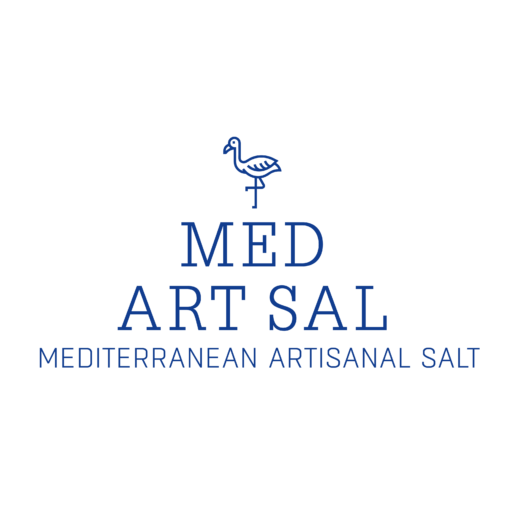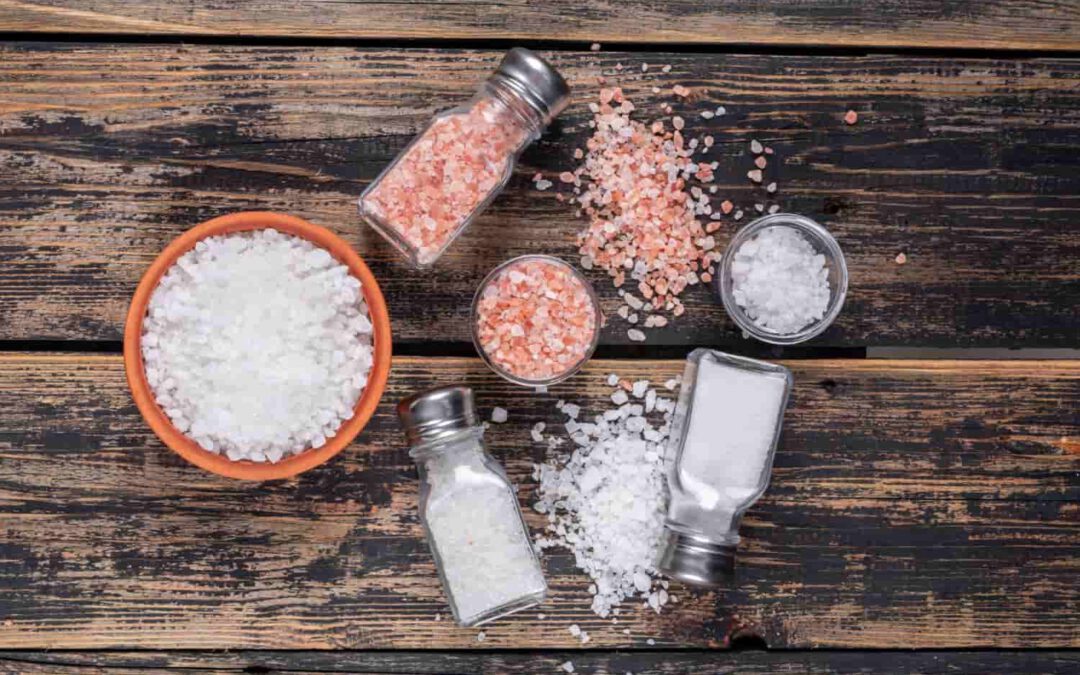Artisanal salt, virgin sea salt, common salt, natural salt, industrial salt, table salt… several terms for the same concept: sodium chloride. It is curious how such an essential element for the proper functioning of our organism has become one of the greatest enemies of our health. The world population abuses salt and the solution that doctors, nutritionists and other experts propose is to eliminate it from our diet. The simplest way suggested is not to season our dishes with salt. However, the problem goes further and lies mainly in its extraction methods and the use that consumers make of it.
The consumer probably does not distinguish in their palate the origin of most varieties of salt. However, artisanal salt and table salt present, from a chemical point of view, notorious differences. Seawater contains 84 trace elements (trace minerals and microelements) in its composition. The main quantitative elements of crystallized salt are chlorine and sodium, representing around 90% of its composition depending on the source water. Nevertheless, what differentiates industrial salt from virgin sea salt is the quality of the other 82 elements, which entails the remaining 10%. These include iron, zinc, potassium, fluorine, iodine and magnesium, the latter almost in the same proportions as chlorine.
Salt is used in food for two very different purposes. On the one hand, to enhance certain flavours, which makes it a very common seasoning. On the other one, it is used as a preservative in perishable foods (especially meat and fish, salted meats and pickles). Abundant salt created hostile conditions for the development of organism responsible for putrefaction and also services to mask bitter flavours that there are sometimes generated during industrial manufacturing processes.
The human being, like many other living beings, depends on the consumption of salt to carry out a large number of functions in the organism (transmit nerve impulses, muscle relaxation, regulate body fluids and water quantity). In this way, its deficit would lead to a series of ailments ranging from headaches, cramps and diarrhoea.
Salt also undergoes refinement processes that harm our health
In the Mediterranean salinas, salt crystallizes on the surface and settles in the bottom, where it forms a hard layer that is collected during the harvest in warm months. In the industrial process, excavators bring a huge amount of mud that naturally settles in the sediments of the crystallizers. Therefore, the extracted salt subsequently goes through refining and cleaning techniques in order to achieve maximum purity in the production of sodium chloride. In the industrial refining process, table salt goes through temperature of 670ºC, which definitely alters its natural structure.
During this process, the salt loses the balance conferred by the remaining 82 elements that form seawater. For this reason, it undergoes the addition of agents such as anti-caking to prevent it from hardening and caking. Besides, it becomes essential to include numerous preservatives to inhibit decomposition processes, as well as other refined compounds such as iodine and fluorine. The result is a refined sea salt composed almost exclusively by sodium chloride (98%).
A salt extracted following the same methods for centuries
On the opposite side, artisanal salt is a completely natural product since it is extracted following traditional methods. As its collection is manual, it does not drag the same amount of mud as do industrial excavators. Subsequently, it undergoes a natural washing process in the crystallizer itself with water concentrations above 25º Baumé.
The traditional process allows salt to preserve all the minerals from the seawater and the trace elements from the mud. This ensures the presence of natural iodine salts that make a subsequent iodization process unnecessary. In the same way, it guarantees the presence of calcium, ferric and magnesium salts. Besides, virgin sea salt is completely free of toxic substances such as heavy metals, carbohydrates, nitrates, etc.
Artisanal salt contains a lower amount of sodium, keeping almost that 90% of sodium chloride from seawater intact. This fact turns virgin sea salt into ideal for people with diabetes, hypertension or kidney failure. In addition, magnesium acts as a flavour enhancer, thus reducing its use in dishes.
The problem of sodium
Through refined salt, a large amount of sodium enters the body daily, a mineral that, although necessary in body chemistry, today has become a problem due to its excessive consumption, especially in inorganic forms.
Refined salt is widely used by the food industry, which, in addition to its flavouring property, takes into account the preservative aspect of salt. It is used abundantly in many products to enhance taste qualities, while in others it performs a preservative function. In addition, sodium is part of up to 44 food additives.
The ideal form of sodium consumption is through fresh foods, which contain it in a biologically assimilable way. But its enormous consumption (it represents 40% of common salt) comes from industrial products, becoming one of the great causes of modern health problems. This is why there are government campaigns aimed at reducing salt consumption. However, it has been forgotten salt is not only necessary for the human metabolic balance, but also a taste pleasure taken in moderation. So the government response to improve the food quality and reduce sodium intake should be to promote fresh ingredients and artisanal salt consumption.
Health problems associated with the consumption of salt is a phenomenon associated to the diet of modern society and food globalization. The processed products that we buy in supermarkets incorporate huge amounts of industrial salt. So it is the daily intake of these products which causes us, for instance, the alteration of blood pressure.
The solution to these health problems has been to advise us that we should reduce our consumption of (artificial) salt, instead of blaming processed foods and urging us to follow a healthy and natural diet that incorporates, in moderation and whenever desired, artisanal salt.




